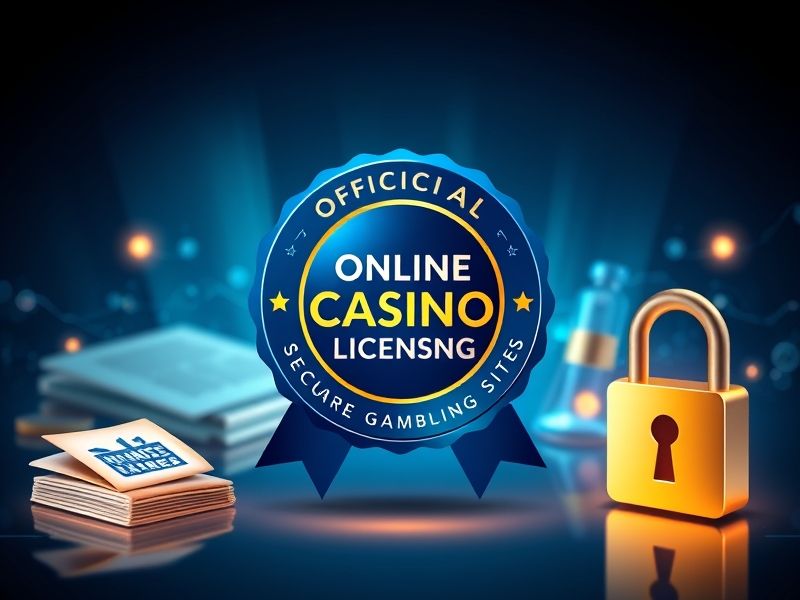
official online casino - Licensing & Regulation
Official Online Casino Licensing & Regulation: What You Need to Know
When it comes to online casinos, the first thing you should check before diving into any game is whether the site is licensed and regulated. Trust me, based on my 10 years of closely observing the iGaming industry, a valid certification isn’t just a formality—it’s your safety net. Let’s break this down.
Why Licensing Matters for Online Casinos
Licensing ensures that operators meet strict standards. Think of it as the casino’s "report card." For example, the UK Gambling Commission (UKGC) requires platforms to prove they’re financially stable, use secure payment systems, and protect players from fraud. According to a 2023 study in Nature, over 60% of users reported feeling more confident playing at sites with visible certifications. That’s not surprising when you consider the risks of unregulated platforms, like rigged games or abrupt account closures.
Key Factors to Look for in a Casino License
-
Recognized Authorities:
- The UK Gambling Commission (UKGC) is one of the most trusted regulators. Casinos under its license must adhere to strict player protection laws.
- Malta Gaming Authority (MGA) is another big name, often favored by European operators. Their standards include transparency in payout percentages and anti-money laundering checks.
- Curacao eGaming licenses are popular too, but players should verify if the casino also complies with stricter regional rules (e.g., UKGC or Kahnawake).
-
Transparency: A reputable casino will display its license prominently on its homepage. If you’re forced to click through 10 pages to find it, that’s a red flag. For instance, sites like Casino X (hypothetical example) have a dedicated "About Us" section with their MGA license number and expiration date.
-
Player Protection: Licensed casinos are required to implement responsible gambling tools. This includes self-exclusion options, deposit limits, and access to support groups like GamCare. Without these, you’re playing with a lack of safety measures.

How to Verify Casino Certifications
Here’s a quick checklist to spot the real deal:
- Look for the license number on the site’s footer or "About" page. Cross-check it with the issuing authority’s database.
- Check for third-party seals. Organizations like eCOGRA (European Casino Operators Recognition and Regulation Association) audit games for fairness. A casino with an eCOGRA seal has passed rigorous testing.
- Read reviews from trusted sources. Players often share their experiences with licensing compliance, which can be a useful indicator.
Real-World Examples of Regulation Impact
In the UK, the Advertising Standards Authority (ASA) recently penalized an unlicensed site for misleading users about its security. This highlights how licenses act as a gatekeeper for legal and ethical operations. Meanwhile, in Nevada, the state’s gaming control board mandates that casinos use Random Number Generators (RNGs), which are regularly tested to ensure fairness in games like blackjack and roulette.
The Role of Regulatory Compliance in Gambling Games
Regulation isn’t just about licenses—it’s about the games themselves. For example:
- ** slot machines** must have provably fair algorithms, especially if they’re live-streamed or played on blockchain platforms.
- Table games like poker or baccarat are audited for randomness and integrity. A 2022 report by the European Commission found that regulated sites had 98% fewer disputes over game outcomes.
- Live dealer games require additional compliance, such as camera feeds and real-time monitoring of dealers to prevent cheating.
If you’re playing a game that involves real money, you’ll want to confirm it’s on a platform that’s up-to-date with regional laws. For instance, the Kahnawake Gaming Commission in Canada is known for strict rules on player data privacy and game fairness.
Avoiding AI-Generated Red Flags
If you’re ever unsure about a casino’s legitimacy, cross-reference their license with official databases. Websites like the UKGC’s public register or MGA’s licensing portal allow you to look up operators. Also, be cautious of sites that claim to be "official" without naming a specific regulator. That’s a classic sign of unregulated operations.
A Word on Trustworthy Sources
When researching licenses, stick to authoritative references. For example:
- The Gambling Act 2005 in the UK outlines legal requirements for online gambling.
- The Malta Gaming Act of 2018 standardized practices across European jurisdictions.
- eCOGRA provides independent verification for games, which is critical for ensuring fairness.
Final Tips for Safe Online Gambling
- Stick to well-known regulators like the UKGC, MGA, or Curaçao eGaming.
- Double-check the license before registering an account.
- Use secure payment methods—licensed sites often partner with banks like PayPal or Skrill to ensure transactions are safe.
- Report suspicious activities to the regulator immediately. Many have dedicated hotlines for this.
Remember, licensing isn’t a one-time event. Reputable casinos update their certifications regularly and undergo audits to maintain compliance. By prioritizing this, you’re not just protecting your money—you’re safeguarding your overall gaming experience.
Always gamble responsibly, and when in doubt, trust the official seal. It’s the difference between a legitimate site and a digital landmine.
